How did an IIT-IIM student Atharvaa Tayade become a secret weapon for Team MGD1?
A player who left competitive chess for academics, but kept playing online 'just for fun'. Years later, he returns and destroys the World Rapid Team Championships 2025 with an insane 11/12 score! He is Atharvaa Tayade, an IIM student who helped Team MGD1 become World Rapid Champions. Think about this: An IITian, an MBA student who turned out to be an unexpected chess hero! His story will make you, or honestly, all of us, rethink what's possible. Check out the article to learn how this "recreational" player outsmarted the professional players. Photo: FIDE/Rafal Oleksiewicz
Not a pro... but a monster!
A recreational player with a 2911 Lichess bullet rating. How often do you find this? He is a player who quit chess for academics. How often do you see this? He returned after many years and beat world-class players by scoring 11/12. How often do you hear this? This isn't just rare. This is unheard of. I am talking about Atharvaa Tayade, not a professional, just an incredibly strong recreational player in India, who also happens to be pursuing his MBA at IIM Calcutta.

Atharvaa started playing chess at the age of six and became the U-11 Maharashtra State Champion in 2011. Though he stayed away from competitive chess for many years, the game never left him. He did not play many classical tournaments, but blitz is his playground. By traditional standards, he might not have been the obvious pick. But GM Srinath Narayanan saw what others didn’t, and the rest is history. He reached out to Atharvaa and decided to make him a part of the MGD1 team for the World Rapid and Blitz Team Championship 2025. The result? Team MGD1 became the World Rapid Team Champions!

So... who exactly is Atharva Tayade? How did he help his team become the Champions? The answer lies in his interview:
Q: First of all, when you look back at your journey, what surprises you the most?
A: Looking back at my entire journey, I am surprised by multiple things, like the fact that I was able to regain my chess strength from my childhood, the fact that my UG college had such a great chess culture that I got back into it, just to name a few.
However, what takes the cake for me with regards to this tournament in particular is the fact that Srinath contacted me and decided to choose me for the team out of all the possible candidates. It was an opportunity I never expected, and honestly, I had no idea this event was even happening in June until I received his message. There is no dearth of talented young players in Indian chess who will likely become very strong in the future, and the fact that I got a chance to play over them is something I feel truly lucky and grateful for.

Q: You thought it was a 'prank' when you first got the message. So what made you realise that it's not a prank and say yes?
A: That was something I said in jest, but when I checked the profile that messaged me, I realized it was something serious. I shared my details with Srinath, and then we spoke on a call for around 15–20 minutes. The next day, he confirmed that I was in the team. Also, from my side, it was always going to be a resounding YES when I realised that it was a genuine message. I was just hoping to get that green signal from Srinath!
Q: You have outperformed world-class players without playing classical for years. What do you think this says about how we define “chess strength”?
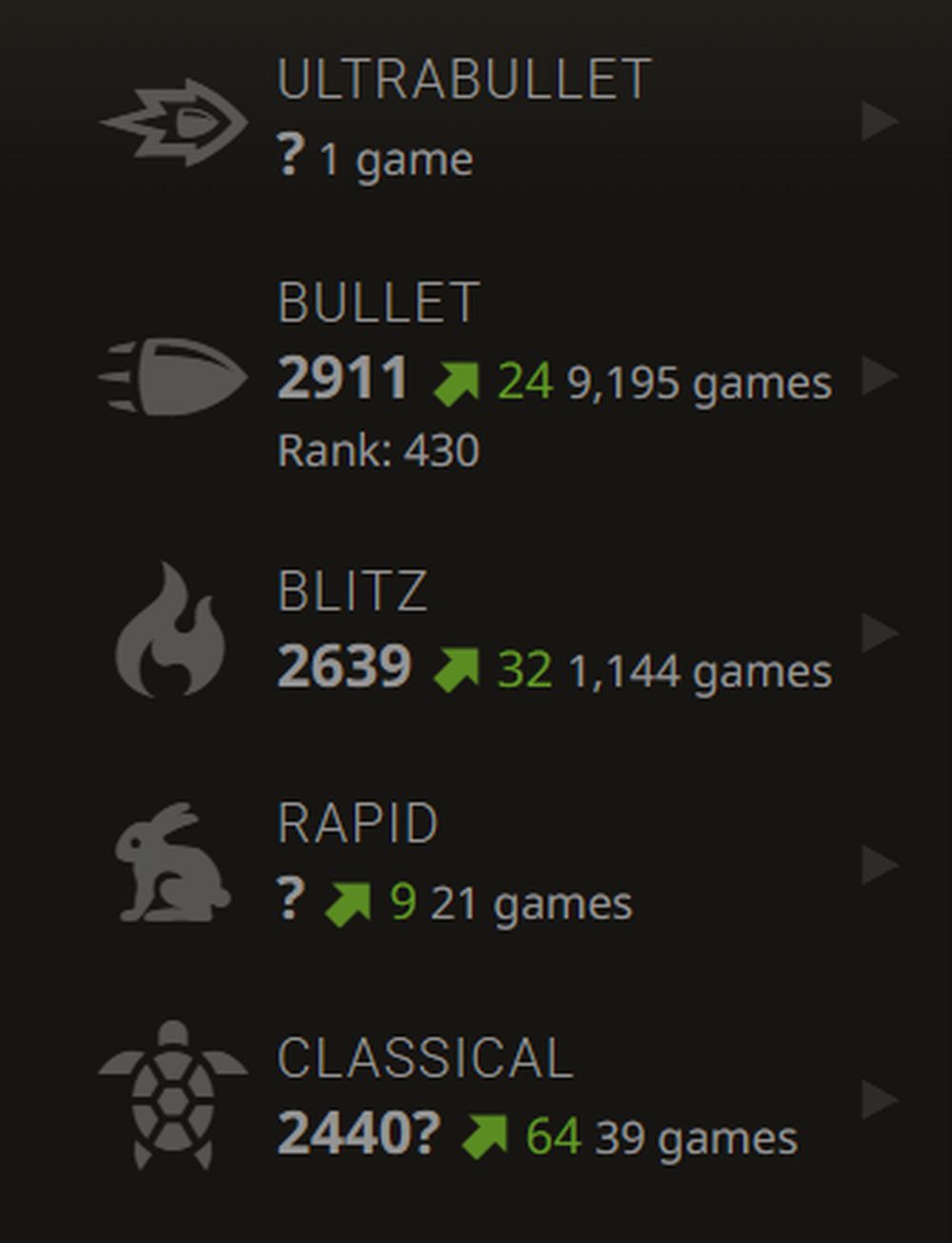
A: I think “chess strength” needs to be defined with respect to different formats. There can be players who excel in specific formats, and that should be respected, especially now, when there is growing demand for other formats like rapid chess and even Chess960.
As for my case, I had already played quite a bit as a kid, and I feel I hadn’t reached my peak in chess back then. My classical rating was only increasing at the time I stopped playing (there was no downward curve). I think I probably had the potential to improve it further, but academics took precedence. So I guess my case is a bit different and needs to be viewed differently.
Q: What was your favourite moment from this tournament?
A: There wasn’t a single moment, but all the games where I helped the team win by a slender margin or hold a match are memories I will take back with great happiness. Apart from that, I was especially pleased with how I managed to control my emotions and handle the stress, drama, and intensity during my game against Wadim Rosenstein from the WR Chess Team. I am proud of how I stayed calm and managed to grind out a victory from a somewhat difficult position that was quite tricky to play practically. And of course, getting the chance to analyse some of my games with top players is something I truly cherish.
Q: You stayed away from chess for academics. Did that make you look at the game differently when you restarted?
A: It definitely makes you look at chess differently. As a kid, chess was my entire world. It defined my mood and emotions. I was very passionate about it, and losing in chess used to hurt a lot. Not that it doesn’t hurt now, but I have come to realise that, at this stage, chess is a part of my life, not my whole life.
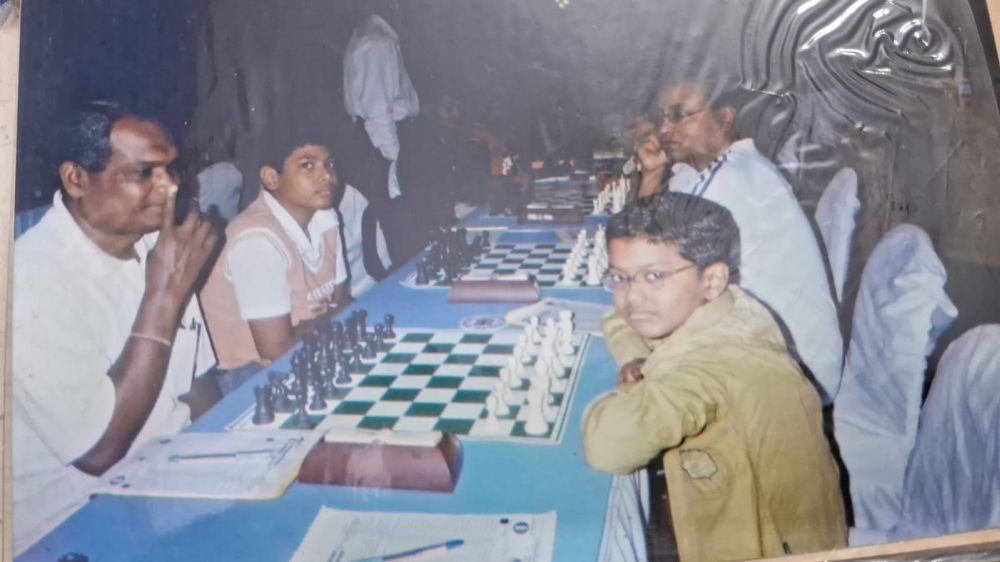
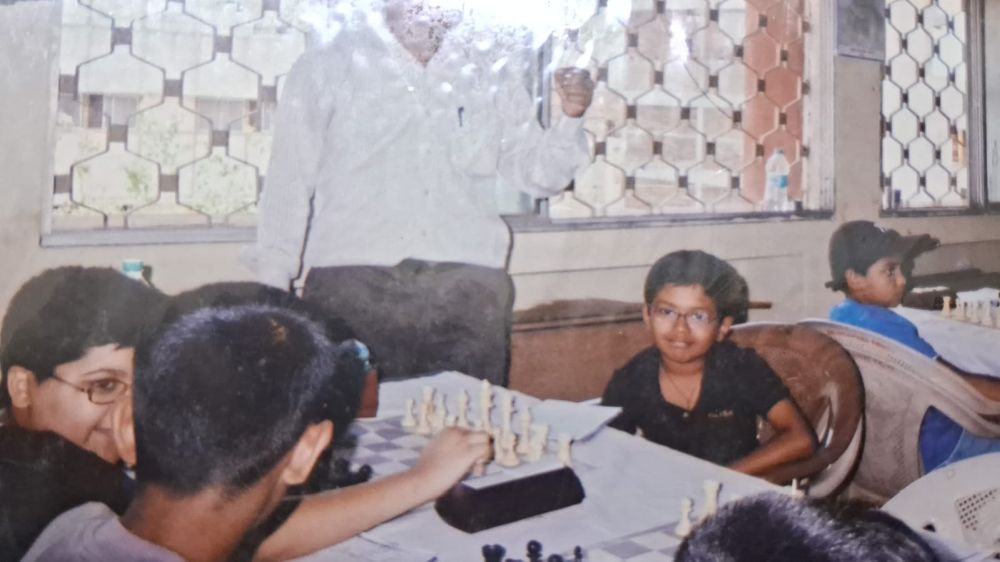
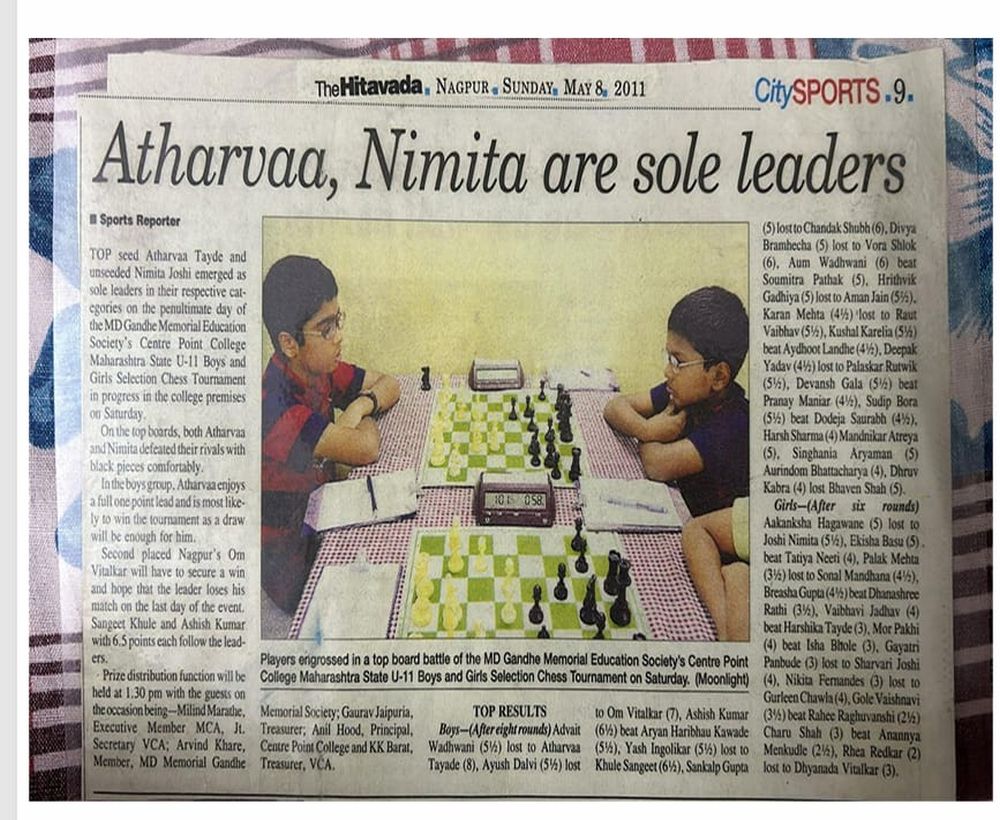
I started seeing it more as a hobby, something that helped me refresh my mind after (or during) a rigorous academic day. I feel that this perspective helped me play chess more freely and with less fear(online as well), which probably helped me in this tournament. I made a few risky decisions in some games that I probably would not have done as a kid.
Q: Did chess help you in any way to crack IIT and CAT exams?
A: Yes, various skills that I imbibed through chess helped me in cracking these competitive exams, such as logical reasoning, patience and resilience. When you work hard at something from a young age, you develop the ability to sit for long hours doing something. That is something which chess has given me, which was of great help in various exams that I gave.
Q: Did you feel nervous before or during this tournament, since you were playing over the board after a long time?
A: I had played some local rapid and blitz tournaments once in a while over the past couple of years, but yes, this was by far the biggest tournament I had participated in for a long time, so I was definitely nervous. It was all about getting back into the groove, which happened after the first three games. I was slightly worse in two of those, but somehow managed to win them. I think that gave me the confidence boost I needed to perform well in the later rounds. This was reflected in my fourth-round game against the WFM from Uzbekistan, where I felt I played a pretty good game.
I knew I had the potential to do well because of my online strength, but the nerves of playing over-the-board chess, especially alongside absolute legends of the game, were certainly there in the beginning.
Q: What was your first reaction when you realized you were scoring 8/8 among world-class players?
A: The gravity of what I had achieved did not really strike me until I went back and checked my messages after the second day. I had my family, friends from IITB, IIMC, office, and some other people as well flooding my inbox with congratulatory messages. My current college, IIMC, was posting about me as well. That was when things started to feel surreal. I saw the commentators talking about me on the FIDE broadcast, and that was when I realised the extent to which this had blown up. It took a moment for me to process everything, but I realised that there was one more day in the rapid event, and my focus shifted to that.
Q: Has this experience changed your perception of what’s possible for you?
A: It certainly has. Before the tournament, I expected to do well, but 11/12 in the rapid event was unexpected. I expected the talented young kids to be in touch with chess and crush me in a few games. Thankfully, I was lucky to have not lost out on the opening, post which I was able to get comfortable positions where I had the experience of playing online.
After this, I certainly believe that in the future I can take some more time out for tournaments and reach a higher rating. However, I am not quite sure about pursuing it professionally (full-time) given factors such as the opportunity cost and the ROI.
Q: After the tournament, you mentioned that you have to complete your class attendance. How did you manage your class with preparations and the tournament?
A: During April and May, I was doing my summer internship (which is an academic requirement for my MBA degree) at Standard Chartered Bank in Mumbai. I was busy with that during those two months, so I could not take much time out for preparation for the event. I discussed this with Srinath as well. My major preparation for the event was limited to the last week before the event, where I played a few games online and checked a few basic openings just to be in touch. With regards to my missed classes, my friends have helped me catch up with the stuff I missed out on, and my college has also been supportive by providing me with a few attendance waivers.
Q: You have studied in two of India’s prestigious institutions, IIT Bombay and IIM Calcutta. How did it affect your passion for chess?
A: I was almost completely off chess from 2015-2019, from the start of Class 9 to Class 12. I got into IIT Bombay in 2019, and that is when I restarted playing chess online for fun. I realised that I still had the chess bug in me, and the chess culture over there really helped me play more often because we used to have many online and offline tournaments, which helped me stay in touch with the game.
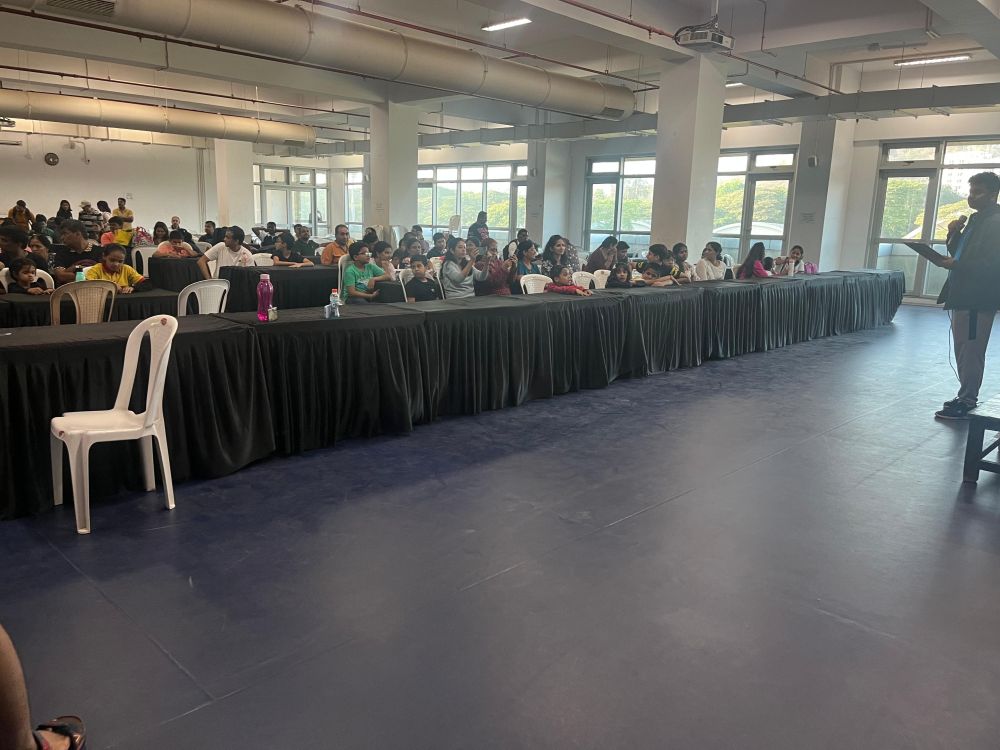
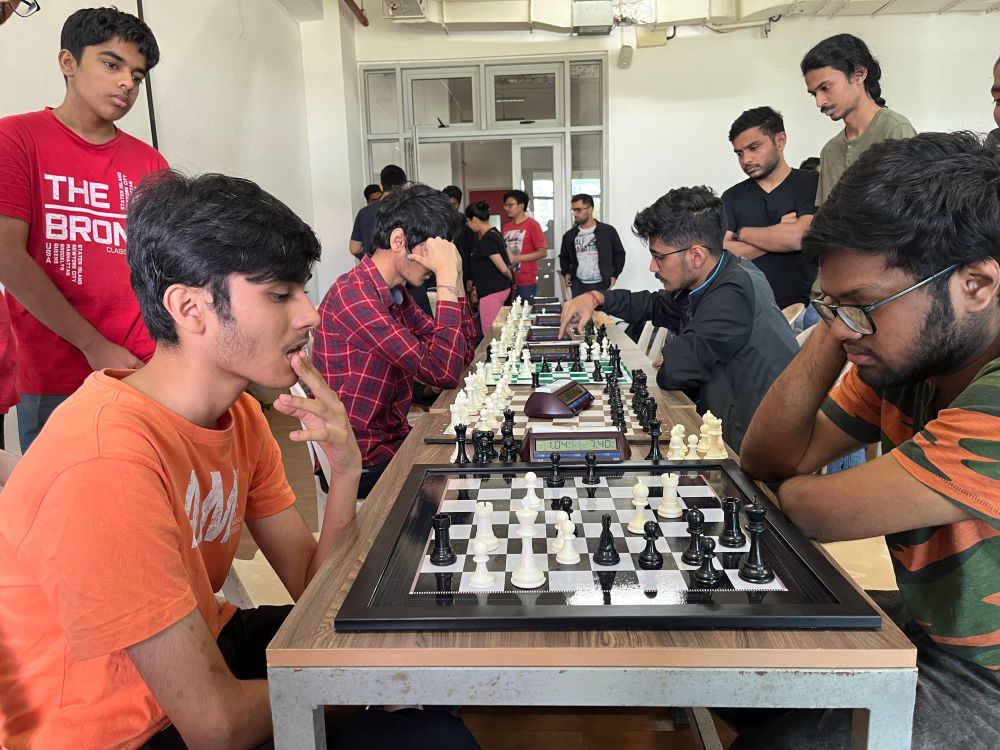
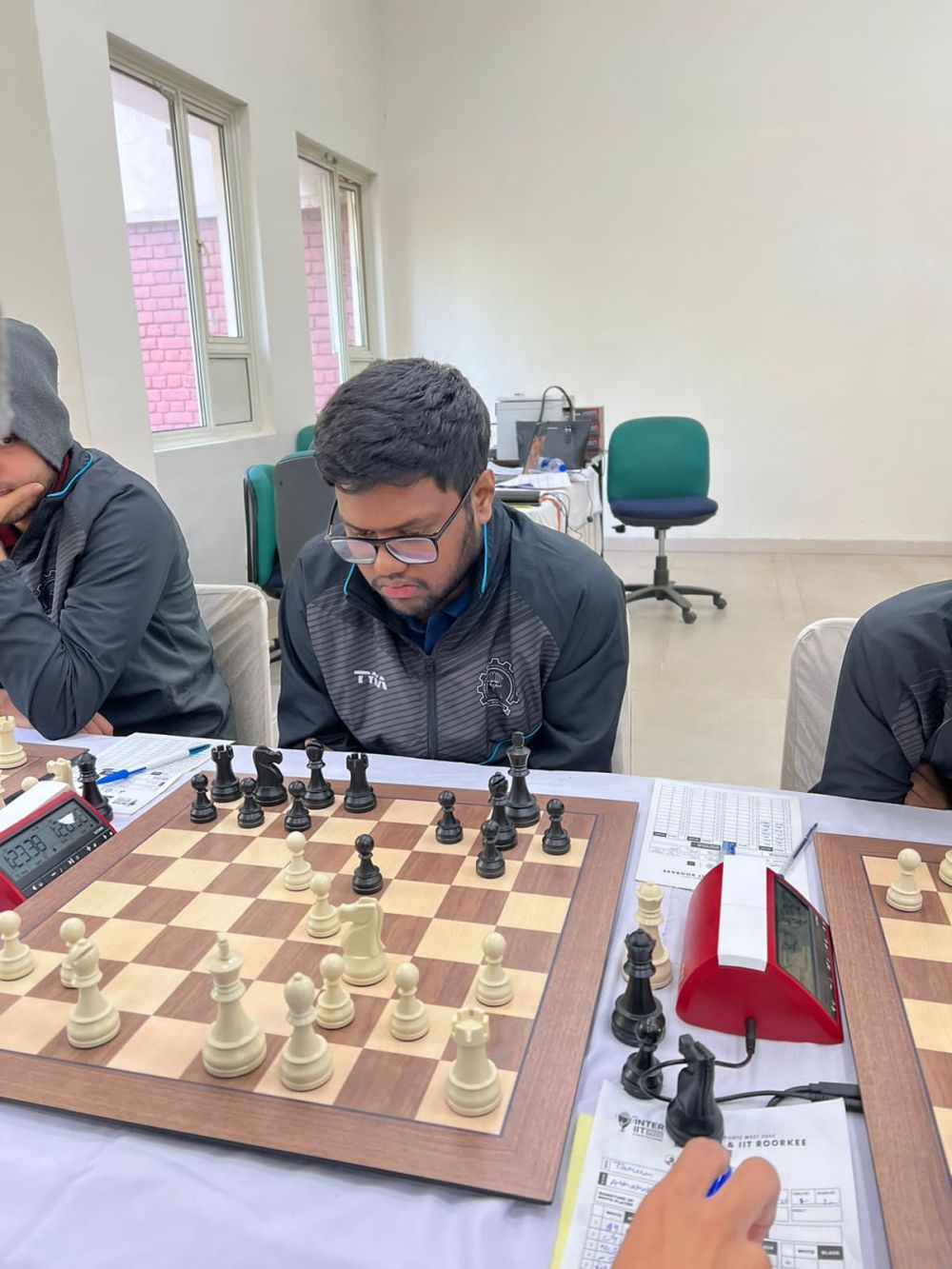
I kept playing online, and especially had a lot of time for that during COVID. I was also connected to chess by organizing events, being a part of the sports council at IITB. I slowly regained my past chess passion and strength, and probably surpassed it. But being away from chess and preparing for these competitive exams made me look at chess differently, which also helped me. I am now passionate about chess, but with a balanced perspective about it and other things as well!
Q: Has anything changed for you, personally or professionally, after this incredible achievement at the World Team Championship?
A: Personally, I have definitely felt a change with more people recognising me in college and elsewhere, which has been overwhelming to say the least. Having said that, I have tried not to get carried away or get caught up in all of this by getting back to the usual stuff of classes, assignments, exams, deadlines, and so on.
Professionally, I have gained confidence in my chess ability, which will probably translate into some more time for chess tournaments, even with a corporate job. But for now, my primary plans involve some kind of corporate job only. Maybe that changes in the future, but nothing for now.
Atharvaa also shared one more of his favorite games with annotations. His insights will surely help you understand what was going on in his head during these critical games.

